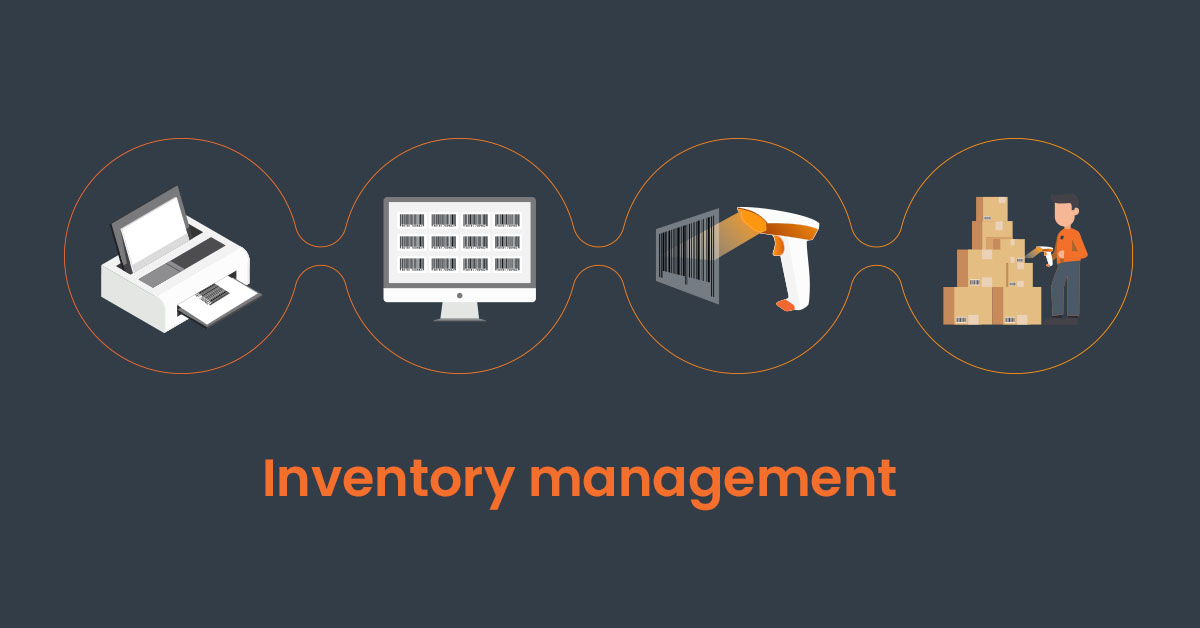EAM: What’s an Enterprise Asset Management Software
It’s a well-known fact that proper asset management provides significant benefits to an organization.
Read the article »No company likes to admit that it loses money because of poor inventory management. Whether it’s because you’ve lost the equipment or you don’t know who has it in their hands, you’re wasting time trying to find it, and as they say, time is money… Have you thought about inventory management with a barcode scanner?

It’s best to take care of your inventory, and barcode scanner(s) might be the solution. Although computers are not perfect, they are far more accurate than any human. That’s why more and more companies are turning to barcode scanners, also known as handheld barcode readers, to manage their assets.
You want to manage your inventory effectively. Could the purchase of scanners be the solution for you?
By using handheld inventory barcode scanners, you can perform asset tracking faster, with fewer resources and more accuracy than with paper-based inventory processes. If you have a lot of materials to add to your inventory management software, a scanner will save you a lot of time.
All solutions have certain disadvantages. As they say, if you don’t risk anything, you get nothing! Rethinking your inventory management to include handheld scanners certainly requires a moment of adaptation, a budget and time.
Depending on the type of scanners you use, you can have either QR (Quick Response) barcodes or UPC (Universal Product Code) barcodes. You’ve probably already seen these two options without knowing the differences between them.
A UPC barcode is the one you see on most products. The coded number uniquely identifies the item.
A QR barcode is a 2-dimensional code that has a set of small geometric shapes organized in a square or rectangle to store information. It can store information in the vertical and horizontal planes, including more than 7,000 characters and can include information such as brand name, model number, maintenance records and many other details. They provide a hundred times more data than a 1D barcode.
Used to scan barcodes to facilitate inventory management, these tools are grouped into 3 types: laser, 1D linear imager or 2D area imager. Among these varieties of scanners, you can find wired or wireless versions.
Laser scanner : They are limited to linear barcodes, but are the most affordable option.
Linear imagers : More expensive and unable to read 2D barcodes, they are able to read damaged barcodes even in poor lighting conditions.
2D Area imagers : They are the most versatile and most expensive on the market. They read 1D (linear) and 2D barcodes, even when poorly printed or damaged, and can scan from any angle.
Mobile App smartphones : This last option is excellent for those who travel frequently. You don’t need to be near a computer. They can read 1D (linear) and 2D barcodes.
We particularly recommend Datalogic’s products, as they are very powerful, fast, effortless to use and easily installable. People who have purchased them have not regretted their investment.
To ensure that you keep your inventory as up-to-date and reliable as possible, you can create barcodes or QR codes linked to the inventory software.
Wonderful, you don’t need to create new barcodes. Just use the existing ones to manage and add your equipment. However, you will need to associate the barcode to the equipment record in your inventory software by scanning the label in the asset number text field.
There is no advantage or disadvantage to having your own barcodes if you already have them in place. However, if you don’t have a barcode, you can take advantage of the fact that Hector generates its own unique numbers as well as the ability to print them out as barcodes, making implementation fast and efficient in your organization.
You will have to create barcodes, but don’t worry, this step is not complex. Some asset tracking softwares allows you to automatically create barcodes for each piece of equipment. To use this function, you will only need to add asset tags beforehand, i.e. unique identification numbers. Thus, each time you add a new asset, the software will automatically assign a unique series of numbers to that asset.
Whether you want to add an asset or report its movement, the combination of a scanner and an inventory software will save you valuable time. Not to mention the fact that you minimize errors as much as possible. It’s easy to make a mistake when searching for an asset by hand in the inventory management software. When scanning, there is no room for error.
To get the most out of using barcodes, you must have the right inventory software for your needs. If you are considering buying a scanner, you want to be more efficient. In order to do that, you need a simple and intuitive asset tracking system that will allow everyone who works with it to be productive.
Convinced that a scanner would be an indispensable investment for your company ? We advise you to look at the use of barcodes with an asset management software you have or want to purchase. Start with the Hector solution !
Our flexible, user-friendly and fast running software provides live access to information about your assets anytime, anywhere. Discover its potential by booking a demo with us!
It’s a well-known fact that proper asset management provides significant benefits to an organization.
Read the article »Spring is often synonymous with renewal. It’s a good time of year to tidy up and clean up. So why not take advantage of the beautiful spring sunshine to make some changes in your business?
Read the article »The facility manager shoulders significant responsibilities as their job requires them to not only ensure smooth operations and manage budgets proficiently, but also to cultivate a work environment that promotes both operational excellence and inclusivity.
Read the article »